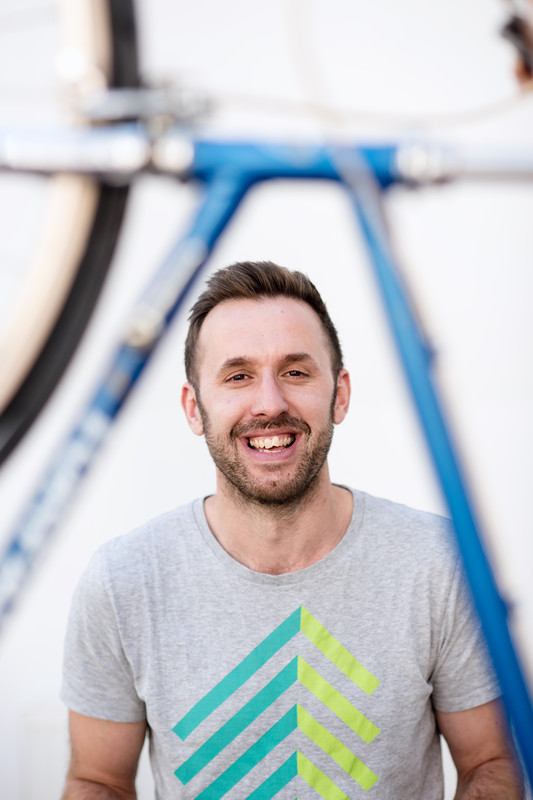This month, we caught up with David George, CEO at Bikmo and active member in Cycling Industries Europe. David shares his thoughts on the future and challenges of the cycling industry.
Can you give us a brief description of Bikmo?
“Bikmo is a specialist insurer focused on the bike and micro-mobility sectors. In 2014, I had the opportunity to pivot into insurance, after recognising how existing policies did fit the risks or demographics of riders. Since its start, the company kept growing and upcoming September, we will be celebrating our 10th anniversary. Our mission is really to protect the world's bicycle riders through providing simple yet comprehensive insurance policies for when they need it most. Currently, we protect over 80,000 riders across the UK and Europe, forming partnerships with various entities ranging from governing bodies for cycling to bike brands and local retailers.
We've observed that many individuals who purchase a new bike opt for insurance because you're never more concerned about it getting stolen or damaged than when you first buy it. We frequently collaborate with brands or stores, offering people complimentary insurance for the initial 14-30 days when they buy a bicycle. We provide comprehensive insurance to ensure individuals feel secure while traveling or participating in events from sportive to triathlons. Our coverage includes protection for accidents and even the gear they wear, which can often be quite valuable.”
What cycling trends are you most excited to see by the year 2030? And by 2050?
“Our sales are impacted by bike sales with over 70% being linked to purchasing a new bike so 2023 was a tougher year, but looking ahead to 2030, I'm optimistic about five years of continuous growth in cycling. This optimism stems from the increasing adoption of electric bikes and, hopefully, heightened investments in public infrastructure to enhance safety and encourage more people to cycle. Some countries, such as the United Kingdom, still have room for improvement, presenting numerous opportunities. The evolving landscape by 2023 is something I'm curious to witness.
We also see the growth of the cargo bike market by the number of bikes that are getting insured which is a quite interesting trend. In terms of volume, it’s still smaller than electric or trekking or mountain bikes which are still quite important in the sector.
Looking towards 2050, my vision is for cycling to become the preferred global mode of transport. When considering investments in public infrastructure, it's imperative for governments and policymakers to prioritise cycling. The primary barriers preventing people from cycling often revolve around accessibility to bikes and concerns about safety when sharing the road with cars. Addressing these issues requires a shift in the dominance of auto lobbies and a more progressive approach from politicians. It would be nice to have people think more about the quality of life.”
What do you see as a major challenge in the cycling industry, and how can Cycling Industries Europe play a role in overcoming that challenge?
“We concentrate on supporting two crucial aspects: access to bikes and maintenance, ensuring that people have bikes to ride. While Cycling Industries Europe is already doing an excellent job advocating for increased investment in public cycling infrastructure, there's still a long way to go and things to push for. Many countries have bike training programs for children for example, but I think there's a need to extend this training to adults who may not have ridden in a long time. Improved infrastructure can also facilitate this.
Regarding accessibility to bikes and maintenance, initiatives like bike leasing schemes could make expensive bikes, especially e-bikes, more affordable. Leasing with extended payment periods, including maintenance and insurance, can be a game-changer too. It's essential to continue lobbying for such initiatives. Consideration should also be given to individuals not working or lacking access to these schemes, ensuring inclusivity.
Maintenance and the end-of-life cycle and re-use for bicycles are crucial to consider too. Bike retailers play a central role for people to continue riding because their bikes must be maintained. You cannot send people away hundreds of miles to have their bike repaired.
Lastly, insurance plays a crucial role in making riders feel secure. About one in eight people won't continue riding if their bikes are stolen. Accessible insurance options are essential to encourage more people to confidently continue cycling.”
What or who in the cycling industry inspires you and why?
“I draw inspiration from people who start a business from scratch and build respected brands, not by spending millions on advertising, but through a real focus on quality and community. Tori Fahey, the founder of Apidura, does this very well. The second person who inspires me is Adam Townsend from Bike Matrix, a New Zealand-based company who is building a compatibility engine similar to my first business but with a better business model. He’s been a bike mechanic and knows well what the bike industry needs. He showcases innovation with compatibility engines and makes the various bike components more understandable. I also want to give a massive shoutout to everyone involved in advocacy like Cycling Industries Europe and Kevin Mayne. I am aware of how patient you must be, but it really makes a difference in changing our sector in the long term. I’d also like to mention Adam Tranter; he is very active in the UK in advancing cycling infrastructure.”
Can you describe in around 5 words how cycling is saving the world?
"More riders, riding more. This is our vision at Bikmo to focus on building a better world through having more people riding bikes, more often and all the benefits for society and the environment it brings."
More on Bikmo at bikmo.com
